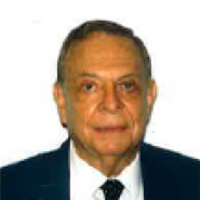Staten Island Estate Planning Lawyer, New York
Sponsored Law Firm
-
 x
x

Click For More Info:
-
The Michelson Law Office
203 North Lasalle Street Suite 2100 Chicago, IL 60601» view mapBankruptcy, Chapter 7, Chapter 13 Chicago Bankruptcy Lawyer
When your finances are at stake, choose the best. Don't sink deeper in debt. Contact The Michelson Law Office
800-824-6431
Includes: Gift Taxation
Russel Morgan
✓ VERIFIEDEstate Planning, Contract, Elder Law, Commercial Real Estate, Trusts
Russel Morgan is a practicing lawyer in the state of New York.
Christopher Pierre Anderson
✓ VERIFIEDEstate Planning, Civil Rights, Business & Trade, Bankruptcy, Landlord-Tenant
Christopher Anderson is a practicing lawyer in the state of New York handling a variety of legal matters.
Robert A. Klipstein
✓ VERIFIEDImmigration, Estate Planning
Mr. Klipstein concentrates in two areas of the law: 1. Trusts and Estates, Estate Planning, Wills, Estate Administration, and Estate, Gift and Inco... (more)
FREE CONSULTATION
CONTACTLaura Marie Brancato
Family Law, Elder Law, Estate Planning, Land Use & Zoning
Status: In Good Standing
FREE CONSULTATION
CONTACTFREE CONSULTATION
CONTACTAmanda Beth Regnier
Corporate, Estate Administration, Estate Planning, Wills & Probate
Status: In Good Standing
FREE CONSULTATION
CONTACTFREE CONSULTATION
CONTACT
 Abraham Michelson Chicago, IL
Abraham Michelson Chicago, IL AboutAbraham Michelson
AboutAbraham Michelson Practice AreasServices
Practice AreasServices




